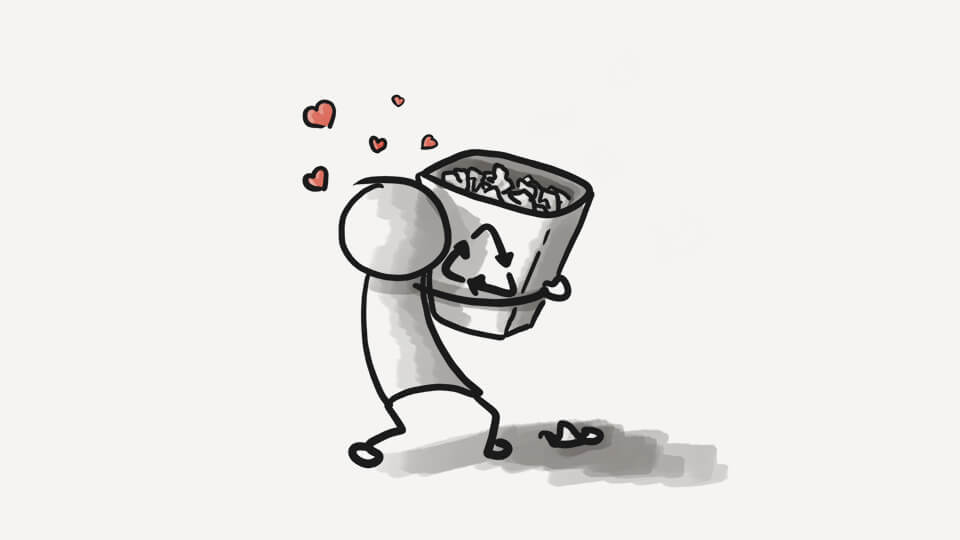Berlin has one of those street newspapers. Motz. It’s a community project that lets the poor and the homeless make some money. The sellers get on the U-Bahn (the underground) and offer copies, €2 apiece. And almost nobody buys one.
It struck me recently, how strange that is. Here you have a homeless man, sober, drug-free, trying to make something of his life, doing what society expects him to do to get back on his feet. (At least judging by how often you hear people tell beggars to “Just get a job.”) And yet, no one wants to help out. €2. Just two euros. That’s nothing. That’s a bagel, a Snickers, a bottle of Coke, a pack of sliced ham or cheese.
Think of the contrast. A carriage full of well-dressed, well-off people. AirPods dangling from every pair of ears, the floor crowded with shopping bags from GAP, Zara, and Calvin Klein, people eating snacks—this was before mandatory masks—they bought a few stations earlier. Those snacks are ridiculously overpriced the world over. And yet everyone refuses to reward this man for his work, not even with a financial equivalent of a Mars bar.
You could say, well, maybe those people don’t read papers? But some did. They just didn’t want to read his paper.
Now, don’t get me wrong. I don’t think anyone’s obliged to reward others for effort. But, considering the circumstances, and the just cause, it struck me how nothing happened. At all. Well, I bought the paper, always do, but no one else did.
Was it a problem with this man? Or his attempt to get out of poverty? Is the paper that bad? No, it has nothing to do with him, his work, or the quality of the newspaper.
The man’s problem, I realized, was his marketing. He tried to sell the right thing for the right reasons, but in the wrong place and to the wrong people. He was like many writers online, saying, “Here I made this. I poured my heart and soul into it. It cost me a lot of effort. Now someone reward me for it, please.” But almost no one does, of course. Only people who care for you. The world is brutal that way.
What does his street newspaper do for people on the U-Bahn? Nothing. They don’t know what it’s for. It’s not something they can eat, or drink, or wear, or play with. It’s a newspaper they were not considering buying until someone approached them about it. And when someone asks you, “Do you want this?” No is not even an answer; it’s a reflex.
Maybe if the man said, “My friends and I are trying to get out of poverty by hard work. We don’t beg but instead work on a newspaper. Would you like to check it out? It would mean a lot.” he would give people a reason to help him out.
“Do you want to buy this newspaper?” and “Would you like to help someone get out of poverty?” are two different questions.
This story stayed with me because, from time to time, I fall into the same trap. Most creatives do. We try to sell what no one wants.
Brutally speaking, the quality of the thing you’re making doesn’t matter. Your reason for making it for doesn’t matter either. What matters is when your work makes another person say, “Yes, I want that.”
Enjoyed the read? Become a Patron to unlock access to more great stories, written and published regularly by yours truly, Sebastian Hetman.

